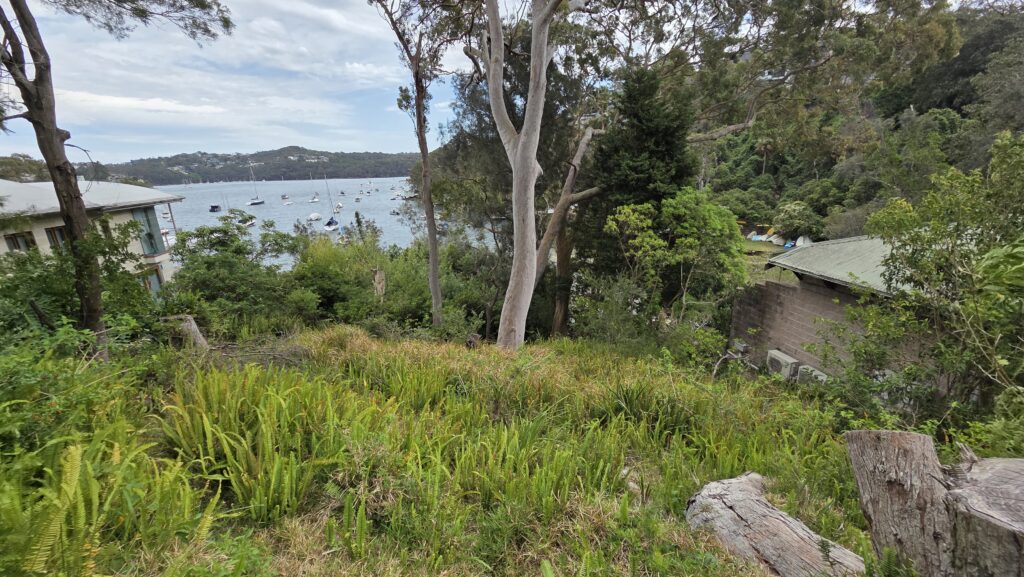NSW Aboriginal Heritage Impact Assessments (AHIA)
>>>
Aboriginal Heritage Impact Assessments (AHIA) in New South Wales
Aboriginal cultural heritage is protected under the National Parks and Wildlife Act 1974 (NPW Act). All developments and activities in NSW must consider whether Aboriginal objects or places may be present and whether proposed works may cause harm. An Aboriginal Heritage Impact Assessment (AHIA) is a formal process used to identify, assess, and manage these potential impacts.
This webpage outlines what an AHIA is, when it is required, what it must include, and how Talking Walls Heritage Consultants can assist.
Do you Need an Aboriginal Heritage Impact Assessment for your project?
What is an Aboriginal Heritage Impact Assessment?
An Aboriginal Heritage Impact Assessment evaluates whether a proposed activity may impact Aboriginal objects or places protected under the NPW Act. Heritage NSW requires that assessments be conducted in accordance with established guidelines, including:
- Guide to Investigating, Assessing and Reporting on Aboriginal Cultural Heritage in NSW (OEH 2011)
- Due Diligence Code of Practice for the Protection of Aboriginal Objects in NSW (DECCW 2010)
An AHIA involves reviewing heritage registers, assessing environmental and historical context, conducting site inspections, and consulting with the relevant Aboriginal community. Its purpose is to determine whether the proposal is likely to cause harm and what measures should be taken to avoid or minimise impacts.
Why is an AHIA Required?
Aboriginal objects are protected whether they are recorded or not. In many NSW regions, numerous sites remain undocumented, especially where sandstone, rock shelters, waterways, and intact soil deposits are present.
An AHIA helps determine:
- Whether Aboriginal objects or places exist within a property
- Whether the proposal may cause harm
- How impacts can be avoided, minimised, or managed
If an AHIA concludes that impacts are unlikely, it can also provide a legal defence under s86(2) of the NPW Act in cases where unexpected heritage is found during construction.
When is an Aboriginal Heritage Impact Assessment Required?
Requirements vary by council; however, AHIA triggers across NSW typically include:
1. Land within an Aboriginal heritage sensitivity area
Properties identified through council mapping or environmental constraints layers as being in a sensitivity zone will usually require an AHIA.
2. Land with potential Aboriginal heritage sensitivity
An AHIA may be required if the proposal involves:
- Excavation or ground disturbance
- Exposure of sandstone or rock surfaces
- Works near waterways, estuaries, wetlands, ridgelines, or dunes
3. Land determined to have Aboriginal heritage sensitivity
Some developments only require an Aboriginal Due Diligence Assessment as a condition of the DA. In certain circumstances, Aboriginal heritage objects or sites may be identified, or the assessment may determine that the likelihood of Aboriginal heritage being present in an archaeological context is high. In some cases, harm can be avoided through careful planning and design.
When this occurs, Talking Walls can provide an extension to the Due Diligence Assessment that delivers the level of analysis expected in an Aboriginal Heritage Impact Assessment (AHIA). This approach can demonstrate—using recognised OEH guidelines and thorough evidence—that harm can be avoided, thereby removing the need for a full Aboriginal Cultural Heritage Assessment Report (ACHAR) and potentially an Aboriginal Heritage Impact Permit (AHIP). This streamlined process can significantly reduce both project timeframes and costs while maintaining compliance and protecting Aboriginal cultural heritage.
What an Aboriginal Heritage Impact Assessment Includes
An AHIA must address all potential direct and indirect impacts across the whole property—not only the works footprint. Required components typically include:
1. Register Searches
- Current AHIMS search (within 3 months)
- Minimum 200m buffer around the property
- Review of previous archaeological or heritage assessments in the vicinity
2. Environmental and Historical Context
Assessment of:
- Topography
- Geology and soil landscapes
- Vegetation
- Land use history
- Sandstone formations and other sensitive landforms
3. Site Inspection
A site inspection must be carried out unless a clear justification for omission is provided.
4. Aboriginal Community Consultation
When an Aboriginal Heritage Impact Assessment (AHIA) is explicitly requested by the consent authority, evidence of consultation with the relevant Local Aboriginal Land Council and Registered Aboriginal Parties (RAPs) must be provided in accordance with Heritage NSW requirements. This ensures that Aboriginal knowledge, cultural perspectives, and community expectations are incorporated into the assessment process.
When a Due Diligence Assessment is extended to include AHIA-level analysis for the purpose of demonstrating that harm can be avoided, consultation with the Local Aboriginal Land Council is recommended but may not be mandatory. However, consent authorities may still request evidence of consultation after submission, and early engagement can help avoid delays and strengthen the assessment’s credibility.
5. Impact Assessment
Clear documentation of:
- Likely impacts to known or potential Aboriginal objects
- Measures to avoid or minimise impacts
- Whether further investigation is required
- Whether an Aboriginal Heritage Impact Permit (AHIP) should be sought
How Talking Walls Heritage Consultants Can Assist
Talking Walls provides:
- Fully compliant Aboriginal Heritage Impact Assessments
- Integrated Due Diligence Assessments and Impact Assessments
- Early design-stage advice to avoid or minimise harm
- Practical solutions to reduce the need for AHIPs and additional reporting
- Thorough consultation with Aboriginal communities
- Clear, concise reports suitable for submission to any NSW consent authority
Our goal is to protect Aboriginal cultural heritage while keeping your project progressing efficiently and compliantly.
Contact us to discuss your project
Elliot@talkingwallshistory.com.au

how we help >>>
Our methods
In-depth Research
Our historians have access to the largest archives of historical information available and the leading experts in each relevant field including ecologists, archaeologists and architects.
Each report produced will include the pictures, maps, plans and newspaper articles that are found during the research process. All sources and reference material are referenced in an academic manor.
Gallery >>>
Previous Projects
Fast And Reliable Service For Your Project Or A Quick Fix, We Do It All!
Lorem ipsum dolor sit amet, consectetur adipiscing elit, sed do eiusmod tempor incididunt ut labore et dolore magna aliqua.





